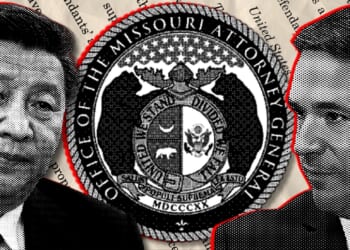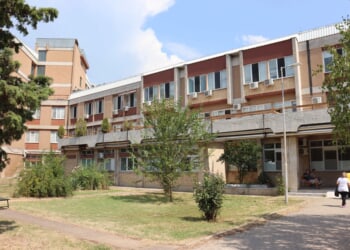In the hallowed halls of Columbia University, where academic discourse once thrived, a darker narrative has emerged — one that challenges the very foundations of free speech and national security. The recent arrest of Mahmoud Khalil, a Palestinian activist and Columbia graduate, has cast a spotlight on the intricate web of campus activism, immigration policy, and the evolving role of technology in safeguarding democratic values.
Mahmoud Khalil: From Activism to Terrorism
Mahmoud Khalil, born in Syria in 1995, immigrated to the United States and pursued higher education at Columbia’s School of International and Public Affairs. His tenure at Columbia was marked by fervent pro-Palestinian activism, notably leading the Columbia University Apartheid Divest (CUAD) group. Under his leadership, CUAD orchestrated numerous anti-Israel protests, some escalating into violence and property damage.
Prior to his activism at Columbia, Khalil briefly served as a political officer with the United Nations Relief and Works Agency (UNRWA), an organization that later faced scrutiny and funding cuts due to alleged connections with Hamas.
On March 8, 2025, Khalil was detained by Immigration and Customs Enforcement (ICE) agents at his university-owned apartment. The arrest, executed without a judicial warrant, was based on orders to revoke his green card, with authorities alleging his involvement in activities aligned with Hamas, a designated terrorist organization. Khalil’s attorney, Amy Greer, contends that the detention is unlawful, asserting that it infringes upon his First Amendment rights and lacks due process.
Khalil’s arrest is not an isolated incident but part of a broader phenomenon of intensified pro-Palestinian activism across American universities. In 2024, Columbia University became a focal point of such activism, with students establishing the “Gaza Solidarity Encampment” on campus, demanding the university’s divestment from Israel. The protests led to mass arrests and heightened tensions between student groups.
Nationally, organizations like Students for Justice in Palestine (SJP) have coordinated walkouts and demonstrations, some of which have been criticized for their rhetoric and associations. (RELATED: Higher Education’s 7 Deadly Sins)
Technological Vigilance: AI in Monitoring Extremism
In response to the growing concerns over campus radicalism and national security, technological advancements have been harnessed to monitor and mitigate potential threats. The “Catch and Revoke” initiative, championed by Secretary of State Marco Rubio, exemplifies this approach. This policy leverages artificial intelligence to analyze the social media activities of foreign nationals, identifying and revoking visas or green cards of individuals expressing support for terrorist organizations. Such measures aim to preemptively address threats by scrutinizing publicly available information, balancing security needs with civil liberties.
Administrative Actions: Financial Repercussions for Universities
The federal government’s stance extends beyond individual actors to institutions perceived as complacent or supportive of extremist activities. Columbia University recently faced a $400 million federal funding cut, attributed to its alleged failure to protect Jewish students and adequately address antisemitic incidents on campus.
This financial repercussion underscores a broader strategy to hold universities accountable for the environments they cultivate, ensuring that academic freedom does not become a shield for hate speech or extremist indoctrination.
Balancing Civil Liberties with National Security
The intersection of activism, immigration, and national security presents complex challenges. While the right to free speech is a cornerstone of democratic societies, it is not absolute, especially when advocacy crosses into support for designated terrorist organizations.
The use of AI in monitoring activities necessitates stringent oversight to prevent overreach and protect individual rights. Similarly, universities must navigate the fine line between fostering open debate and curbing harmful ideologies.
The arrest of Mahmoud Khalil serves as a poignant reminder of the multifaceted challenges facing modern democracies. It highlights the need for vigilant immigration policies, the responsible use of technology in monitoring extremism, and the imperative for educational institutions to uphold both free inquiry and the safety of their communities. As these dynamics continue to evolve, a balanced approach that safeguards civil liberties while ensuring national security remains paramount.
READ MORE from Kevin Cohen:
China and Russia’s Economic Takeover in Africa: The Global Shift America Cannot Ignore

















